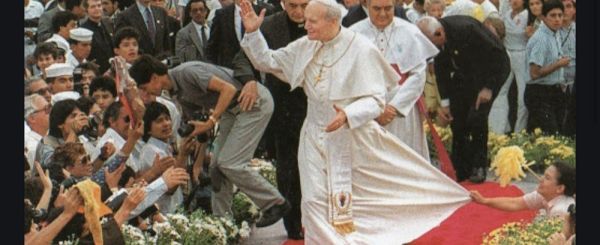Through the Jubilee, finally, the Lord asks us to rekindle our charity. The Kingdom which Christ will reveal in its full splendour at the end of time is already present where people live in accordance with God’s will. The Church is called to bear witness to the communion, peace and charity which are the Kingdom’s distinguishing marks. In this mission, the Christian community knows that faith without works is dead (cf. Jas 2:17). Thus, through charity, Christians make visible God’s love for man revealed in Christ, and make manifest Christ’s presence in the world “to the close of the age”. For Christians, charity is not just a gesture or an ideal but is, so to speak, the prolongation of the presence of Christ who gives himself.
During Lent, everyone — rich and poor — is invited to make Christ’s love present through generous works of charity. During this Jubilee Year our charity is called in a particular way to manifest Christ’s love to our brothers and sisters who lack the necessities of life, who suffer hunger, violence or injustice. This is the way to make the ideals of liberation and fraternity found in the Sacred Scripture a reality, ideals which the Holy Year puts before us once more. The ancient Jewish jubilee, in fact, called for the freeing of slaves, the cancellation of debts, the giving of assistance to the poor. Today, new forms of slavery and more tragic forms of poverty afflict vast numbers of people, especially in the so-called Third World countries. This is a cry of suffering and despair which must be heard and responded to by all those walking the path of the Jubilee. How can we ask for the grace of the Jubilee if we are insensitive to the needs of the poor, if we do not work to ensure that all have what is necessary to lead a decent life?
May the millennium which is beginning be a time when, finally, the cry of countless men and women — our brothers and sisters who do not have even the minimum necessary to live — is heard and finds a benevolent response. It is my hope that Christians at every level will become promoters of practical initiatives to ensure an equitable distribution of resources and the promotion of the complete human development of every individual.
[Pope John Paul II, Message for Lent 2000]












